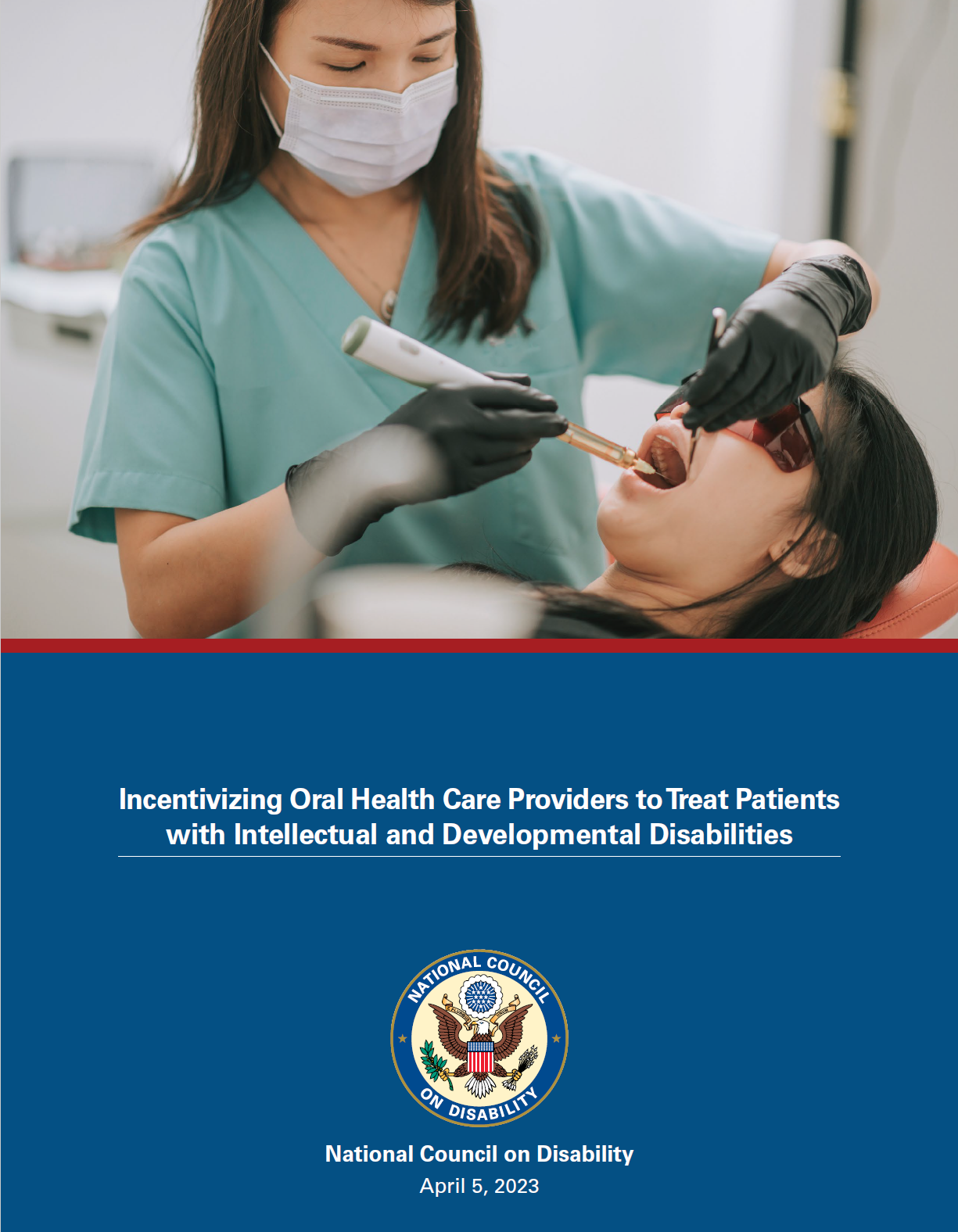Incentivizing Oral Healthcare Providers to Treat Patients with Intellectual and Developmental Disabilities

April 5, 2023
SCOPE AND PURPOSE: Access to quality, appropriate and timely oral healthcare services is a significant issue faced by people with intellectual and developmental disabilities (I/DD). Despite efforts by federal, state and local agencies, legislatures, and key advocates, adults with I/DD remain the largest minority population with unmet oral healthcare needs. In this report NCD explored three issues impacting access and use of dental care services by adults with I/DD including oral healthcare provider participation in Medicaid programs that cover dental services for adults with I/DD, return on investment (ROI) to states for sufficiently funding a comprehensive Medicaid dental benefit for adults with I/DD, and comparison of Medicaid managed care dental provider reimbursement rates to Medicaid fee-for-service dental provider reimbursement rates. The report also examines promising practices in the areas of policy advancement, dental provider training, and financing. As the healthcare system in the United States (US) continues to evolve, care must be taken to ensure that government policies and programs serving people with I/DD advance within the system to deliver quality-driven, patient-centered, integrated healthcare services. Legislators, federal and states agencies, Medicaid managed care plans and providers must work together to ensure that a sufficient and competent integrated healthcare workforce is in place, and that policies support coverage of benefits that meet the special needs of people with I/DD. Financing to support the administration of programs and services must be sufficient and readily available.
The report’s major findings include:
- Adults with I/DD are an aging population with complex conditions that warrant integrated coordinated healthcare services between medical and dental providers. Conflicting definitions of the population exist creating confusion and inconsistency across government programs. Medicare and Medicaid programs do not support dental care for adults with I/DD.
- Unlike the Medicaid medical program, Medicaid dental program claims data captures services delivered, but does not capture nor link dental services to medical necessity. The absence of codes that document medical necessity inhibit the ability of Medicaid dental programs to establish medical necessity, assess beneficiary oral health outcomes, oral healthcare outcomes, and validate charges associated with service delivery. Such antiquated programs are unable to demonstrate better care, better health, and lower costs.
- State Medicaid programs are not required under federal law to cover dental services for adults with I/DD. Existing Medicaid programs serving people with I/DD generally exclude dental services. Programs that do exist struggle to find dentists to treat adults with I/DD. Because dental provider availability is limited, many adults with I/DD resort to accessing costly dental services in the Emergency Department.
- Adults with I/DD are an aging population with complex conditions that warrant integrated coordinated healthcare services between medical and dental providers. Standards of care and professional guidelines to support integrated healthcare models for adults with I/DD are few and far between. Dental and medical systems of healthcare do not support integrated healthcare models for people with I/DD. Few professional dental education and continued education programs incorporate integrated healthcare models.

